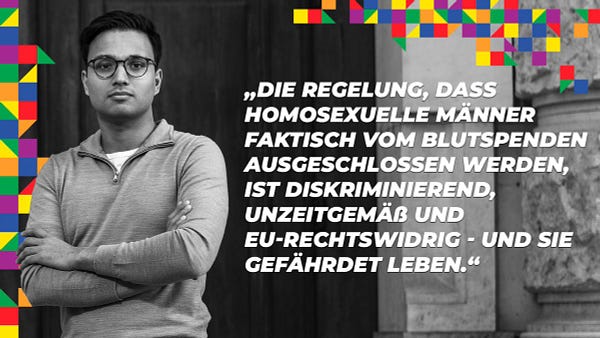Who Gets To Be Austrian?
The Social Democratic Party has proposed reforms to Austria's nationality law that would make it easier for those born in the country to foreign parents to obtain citizenship
Servus!
There are, according to the NGO SOS Mitmensch, more than 220,000 children born and living in Austria who do not have Austrian citizenship—a figure which, since 2007, has almost doubled. A further 80,000 people who were moved to Austria in their earliest years and are growing up or have grown up here also do not have an Austrian passport. These are among those pushed to the periphery of Austrian society by one of the most restrictive nationality laws in Europe, one that demands 10 years of unbroken residence and particular income levels and in effect bans dual citizenship.
It is in this context that the Social Democratic Party (SPÖ) has proposed reforms that would make the path towards Austrian citizenship less thorny. The number of years one would have to live in Austria in order to become eligible for citizenship would be reduced from 10 to six, while a child born in Austria would automatically receive citizenship provided their parents had lived in the country for five years. The SPÖ would also introduce a new form of citizenship exam and lower some of the financial hurdles that presently block people’s path to citizenship including the €1,115 naturalization fee.
The SPÖ’s proposed reforms found support on the left including from the governing Green Party. Vice-chancellor Werner Kogler described his party’s approach to the citizenship issue as “similar” to that of the SPÖ, and said in a sit-down interview with the Standard that he considered it right and proper that someone who has lived in Austria for “five or six years” should be able to submit an application for citizenship. Kogler also noted there is nothing in the current coalition’s program concerning citizenship. “Perhaps that will be a topic for the next round of negotiations,” he said.
The likelihood of Kogler getting anything on citizenship with the People’s Party (ÖVP), however, is very slim indeed. The ÖVP’s parliamentary party boss August Wöginger came out all guns blazing over the weekend with a press release whose language was dangerously close to that of the alt-right and believers in the Grand Remplacement, the Great Replacement. Austria’s left-wing parties, Wöginger said, want to “change the majority in the country” by means of “mass naturalization,” warning of a possible half a million naturalization cases, thereby granting “the right to vote to foreigners via the back door.”
This figure of 500,000 new citizens was repeated on Monday by the integration minister Susanne Raab and Europe minister Karoline Edtstadler. Peter Kaiser, governor of the state of Carinthia and one of the driving forces inside the SPÖ behind these proposals (not least because his state in southern Austria is one that suffers from too much emigration as opposed to immigration), called it bupkis, and indeed, Austrian integration and citizenship experts cannot explain where the figure came from either. No matter, for whether grounded in fact or not, the ÖVP is more than happy to pick a fight about immigration and talk about any issue behind the corruption allegations currently engulfing the party.
In a country of 8.9 million people, some 1.5 million do not possess Austrian citizenship—17.1 percent of the population. Such a large minority excluded political and democratic life is a national crisis, and yet it is incredibly difficult to have an honest discussion about immigration in Austria, in no small part because the right in the guise of the ÖVP has a very narrow conception of what ‘integration’ means and the nature of the give and take between immigrants and the state. Citizenship, the SPÖ’s Nurten Yılmaz believes, is not a “crown” to be bestowed “but rather the motor that drives integration.” Kaiser has called for a “paradigm shift” in how Austria discusses and conceives of integration and citizenship. He is unlikely to get it.
Bis bald!
Thank you for signing up to the Vienna Briefing. If you know someone who would be interested in receiving this newsletter, consider sharing it with them today.
Delta Dawn
The first cases of the Delta variant of the coronavirus have been recorded in Austria. Those who tested positive for the variant were travelers returning from Russia, the Maldives, Nepal, Italy, and El Salvador respectively. More than half of the Austrian population aged 12 and over has now received a first dose of a coronavirus vaccine.
Blood Ban
Lawmakers from the SPÖ and NEOS have called for an end to a de facto ban on gay men donating blood. The current rules mean men who have had sex with men within the past 12 months are excluded from donation. Vienna’s annual Pride Parade will take place June 19 having been cancelled last year due to the coronavirus.


Arnautović Anger
Austria’s Euro 2020 campaign began with a 3-1 victory against North Macedonia, the country’s first win in a European Championship tournament. The Macedonian football authorities have called on UEFA to investigate Austrian striker Marko Arnautović who may have directed xenophobic remarks towards two ethnically-Albanian Macedonian players.





